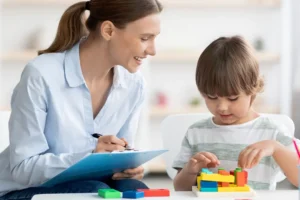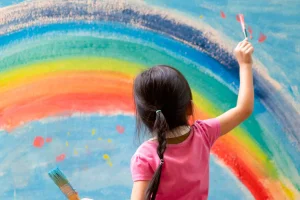Discover The True Value Of Artistic Skills
![]()
- Posted by abrakadoodle.com.sg
- Categories Art Education
- Date 14 June 2022
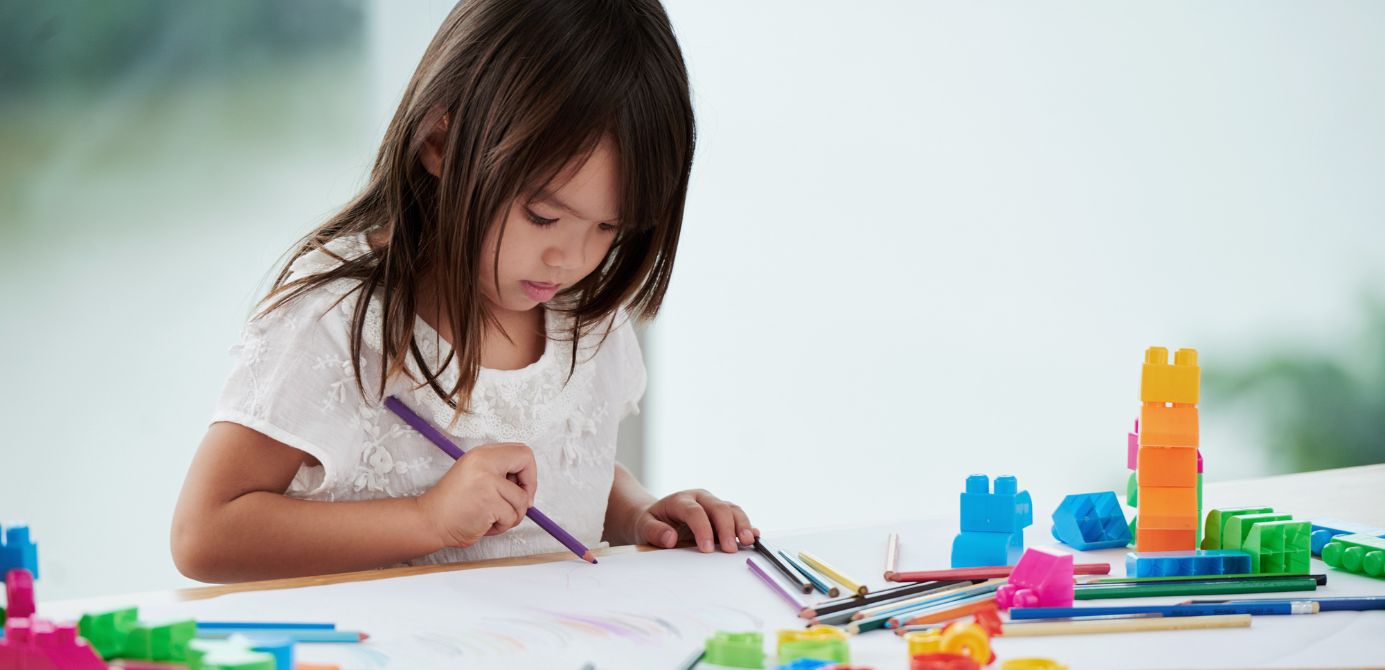
Developing Artistic skills in young children is a different and fun way for a child to learn to express and talk about emotions and feelings. It promotes well-being and creates a space for social interaction.
Remember, if we only teach our children information, we are failing them. We need to equip our children with the skills to explore ideas and to have the confidence to experiment, problem solve and work out their own solutions. Be ready for their future in a very different and rapidly changing world.
Among the many benefits of art is that it can be used to stimulate the senses and spark a child’s natural curiosity. It allows each child to create their own journey of exploring ideas and concepts, such as what happens when you mix colours or combine shapes or compare rough and smooth. Your child discovers by doing – and that means discovering what doesn’t work, as well as what does work.
Artistic skills stimulate a child’s curiosity, creativity and imagination and support the development of communication skills. Being creative helps children cope with their feelings and fears, as well as manage their emotional states.
Table of Contents
ToggleWhat do children learn through art?
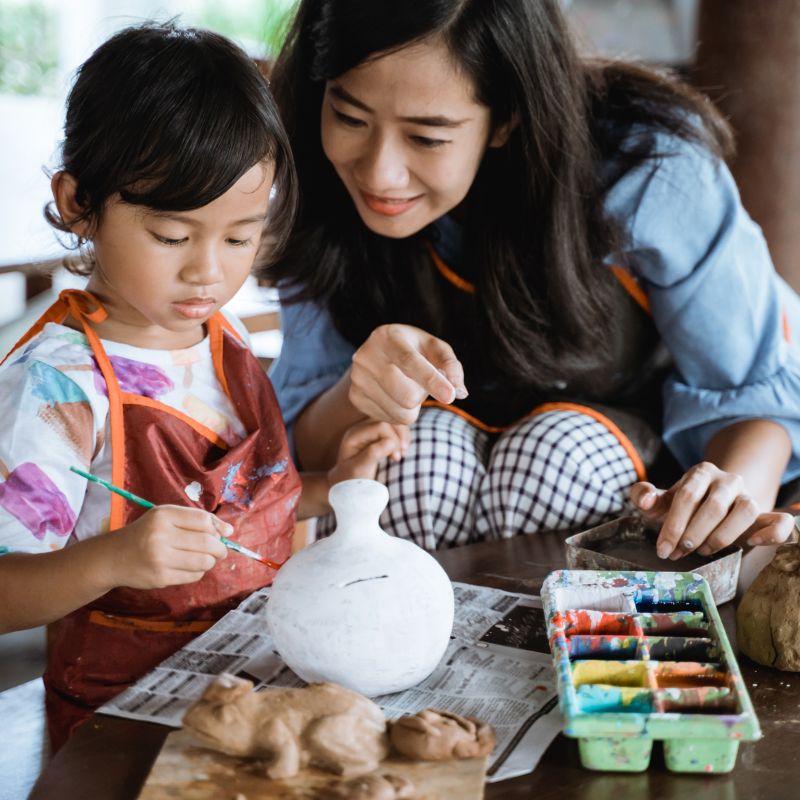
Being involved and engaged in doing the right type of art and creative development activities can make a big difference when it comes to the quality and depth of learning. Open-ended process art is the key.
The idea is to eliminate learning by rote or copying someone else’s work. The approach is to avoid showing models or samples for the children to follow. Because the moment you show a child how you like something to look, her thoughts change and she will straightaway begin to copy rather than think on her own.
Process art has no planned product, no sample to copy – it’s more spontaneous and open-ended, teaching children to think and trust their own imaginations, their own ideas and to solve problems.
It is always letting the creative process paint the real picture – and we’re not just talking about drawing skills and artistic ability. Art and creative development activities help with everything from stimulating the senses and building self-esteem to problem-solving and enhancing social skills.
Mastering the art of growing up
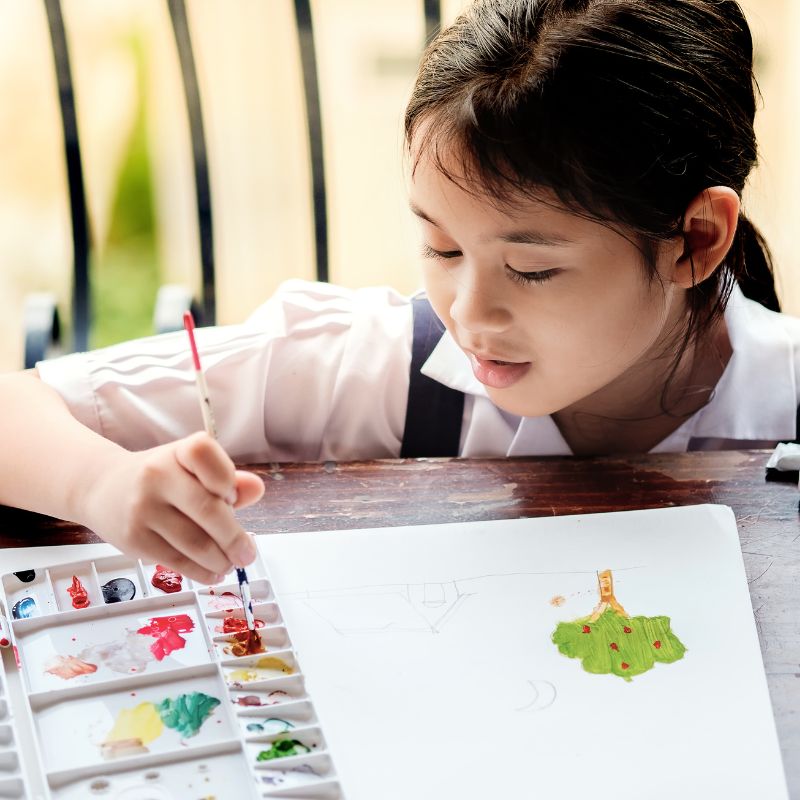
Exploring the visual arts and making them an integral part of your child’s learning will be essential for nurturing and ensuring all-round development. Your child will first begin to enjoy the sensory nature involved during the process of acquiring creative art skills. As her physical control over the art materials improves, she’ll feel an enormous sense of satisfaction and empowerment.
She will also begin to acquire other skills that will play a key role in helping her grow into a balanced individual. Improved social skills will be the first of the many positive outcomes. By having to share art materials and collaborating on creative projects, your child will learn to wait her turn, negotiate and begin to understand what it takes to work as a team.
Participating in arts experiences leaves behind a positive impact on the entire family. Parents meet new people who are like them, make friends and will feel less isolated. As for children, playing with art materials develops their interest in drawing and painting, transforming them into calmer, more expressive and spontaneous individuals. They also begin to acquire numerous life skills along the way.
Teaching children to think for themselves
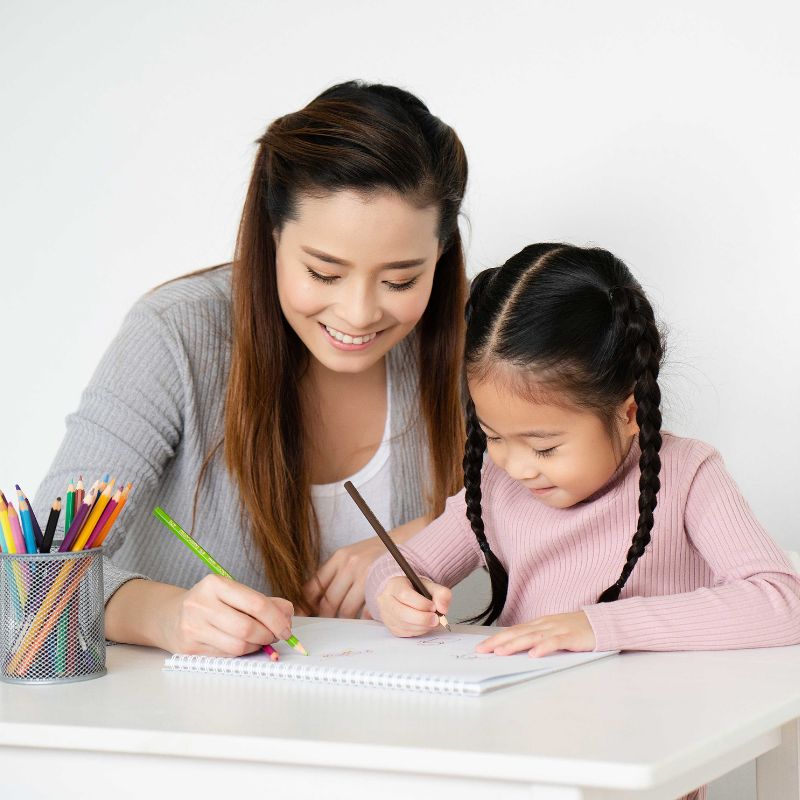
Creative art skills help in cognitive development. For instance, early sensory exploration — the feel of a crayon across the paper, the smell of paint – stimulates and enhances their sense of touch. Decision-making skills are also honed, deciding what to paint and what materials to use, lays the foundations that will help them to face and handle complex decisions later on.
Approaching problems and developing the skills to solve them take deeper roots. Figuring out how to get two different materials to stick together, and understanding what makes them stay glued to each other., will only be the beginning of the ability to solve problems.
Art is a language, like any other. It is invaluable because it helps a child to express her thoughts and feelings freely, even though your child may not readily know the words to express what she feels. Self-expression will lead to picking up better ways to articulate and improve verbal communication. Enabling children to tell stories and be able to express their hidden thought and deeper feelings.
On the physical front, the small but critical movements of the fingers, hands and the wrist, will help your child to hold a crayon, pencil or paintbrush correctly. Helping her to draw, paint or scribble and write. Playing with playdough develops the fine motor skills of young children, and the large, arm movements required when painting at an easel or on a large sheet of paper on the floor, develop the large muscle groups.
Every child is curious, always questioning and inventive. Encouraging your child to experiment and take risks trying new things during the creative process, develops and nurtures the sense of innovativeness – a crucial and valuable skill in business and in life.
Benefits of arts during early years
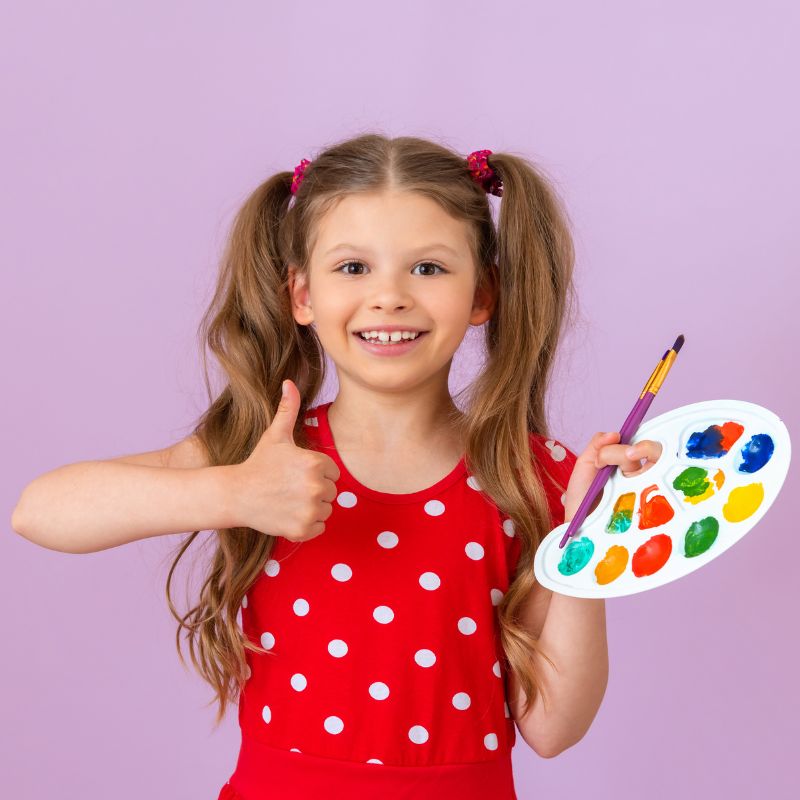
Active involvement of your child in developing artistic skills and having enjoyable cultural experiences can enable her to cope with anything her life has in store for your child.
- Artistic skills will help your child to acquire and develop subsequent abilities in the arts, the best part is, these skills will stay with her for life!
- Help your child make sense of her cognitive, physical, emotional, spiritual, linguistic, and moral development by enhancing these experiences.
- There is deeper bonding between the parent and child as you stay engaged with your child’s learning, creating a positive focus for shared experience and easy communication.
- Play and art create opportunities for the exchange of ideas, increase confidence and invest in resources that assist your child’s learning as a natural part of everyday life. You as a parent, are obliged to expose your child to enjoy stimulating and compelling experiences at museums, galleries, theatres, libraries, dance, arts or music venues.
- Artistic skills develop intrinsic human qualities, such as creativity, expression, identity, culture and imagination. Art enables young children to develop their own languages and shape their individuality and develops a sense of belonging.
- Being able to create art from real life has a positive impact on confidence, self-esteem, personal, social, emotional development and behavioural health. It also breaks down language barriers and cultural prejudices, leading to decreased social tensions and resolving problems.
- By far, the biggest advantage of having artistic skills is it adds energy and brings vibrancy to learning. Resulting in a much deeper understanding of our child’s needs and interests. This will lead to consistent improvement, rising standards of accomplishments and a higher sense of fulfilment for you as a parent!
About Abrakadoodle
Art education at Abrakadoodle creates learning experiences you can use to inspire your child to think different, be innovative, and devise ways that teach about interesting things found in the real world. Changing the way she discovers and imagines. Igniting her mind to think, play and learn like never before.
If you like to enrol your child in our children’s art classes or participate in cognitive learning activities, give Abrakadoodle a call. Or better still, make an appointment with the head of
a centre near you.
Get hands-on, real-time exposure to experiences that will make you see art in a way that adds value to your child’s life.
Frequently Asked Questions
Tag:art and creative development, art and creative development for young children, art and creativity, art classes for kids, Artistic Development in Young Children, basic art skills for beginners, children art program, creative art skills, Creative Arts in Early Childhood Education, Drawing & Painting Classes for Kids, drawing and painting skills, fine motor skills for kids, Simple Art Activities For Preschoolers
You may also like
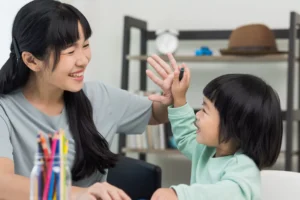
Art Lessons Help Children To Think And Express Themselves Clearly
